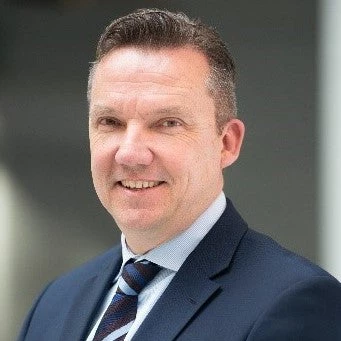Having recently moved from South Africa to Belgium, I can’t but wonder whether six decades of European integration are relevant for Africa. Or are we comparing apples and mangoes?
The idea of an economically and politically united Africa has been gaining momentum since the first Pan-African Congress of 1900. Roughly one century later, the African Union (AU) was launched at the 2002 summit in Durban, South Africa.
The European Union (EU) started small with the European Coal and Steel Community (1951 Treaty of Paris) with only six countries. Today, it includes a common market, a common currency and increasingly a coordinated foreign and security policy.
Before you ask, yes, I have looked at a world map lately and I am also aware of history!
The AU counts 53 members (twice the EU’s current number), and with 1 billion people also twice the EU’s population. Furthermore, Europe in the 1950s and the African continent today could hardly be more different in their starting positions - geographically, economically, in terms of infrastructure and human capital stocks, the state of public institutions, or the checks and balances on leaders.
Nevertheless, there are three lessons about how Europe has approached integration that are worth looking at in Africa.
1. Bringing the people along – Ok, here European politicians had an easier start. Two World Wars made it abundantly clear to the vast majority of European citizens that Europe needed to integrate and deliberately create mutual dependencies in order to sustain the peace. The Cold War helped integration further; nothing unites better than a common enemy. But the ongoing heated debate in some countries around Euro introduction, the Swiss referenda on EU membership, the Greek bailout and the recently failed creation of an EU Constitution show that public support should never be taken for granted.
While Africa had no shortage of conflict either, the cumulative effect does not seem to have created a strong enough political rationale for African citizens to feel the need to integrate. African leaders will need to use the strong economic rationale to create broad public understanding and political desire for regional integration. This will take time. Hence it has become urgent.
2. Political will and leadership, not just institutions matter – As the EU experience shows, regional integration (RI) is a deeply political process, because when it gets interesting (open markets, common trade policy, common currency, joined external policies) it entails giving up national sovereignty. Instead, in the development discourse in Africa, RI appears more as a technical development challenge of how to integrate roads, power grids, trading areas, currencies, often without seeking a political consensus first.
A related issue is that RI doesn’t happen just because institutions (such as the RECs) say so. If you had wanted to talk to Europe about the introduction of a common currency in the 1980s you probably wouldn’t have gone to Brussels first, but to Bonn and Paris.
RI happens because countries and elected officials show leadership, often against fierce domestic political resistance. In the EU, this leadership was provided early on by the BENELUX countries, three smallish countries with a big vision (take note Burkina, Burundi and Lesotho!), and later in particular France and Germany as the locomotives for integration (take note Kenya, Nigeria, South Africa!).
Having gone through two World Wars, Kohl and Mitterrand and their predecessors personally understood that the European project was ultimately about peace and prosperity, and they were willing to fight for it (politically, this time around).
Institutions like the European Commission were created as the result of that strong political will of member states. Yet in Africa we seem to have an obsession with creating more institutions - underfunded, often lacking legitimacy and with overlapping membership - and then trying to build their capacity without the necessary leadership of the member states.
3. The need to be strategically selective and to sequence – In a fast forward from 1951 until today the EU went from the coal and steel sectors to agriculture, to a common market, to the Euro and now gradually towards a common foreign/security policy under the ‘Lisbon Treaty’.
In Africa we have hundreds of simultaneous initiatives from air traffic control to bio diversity to transport to malaria and education, all without a doubt important in their own right, but taken together hardly strategic. This lack of strategic sequencing is exacerbated by much lower aggregate capacity than Europe had back in the 1950s or 1960s, which would argue for even greater selectivity and slower sequencing than the EU chose in its own path.
Can African leaders focus on say just energy and transport and integrate them successfully over the next decade? And will donor partners accept if their pet initiative doesn’t make the top two, for the sake of the greater good?


Join the Conversation